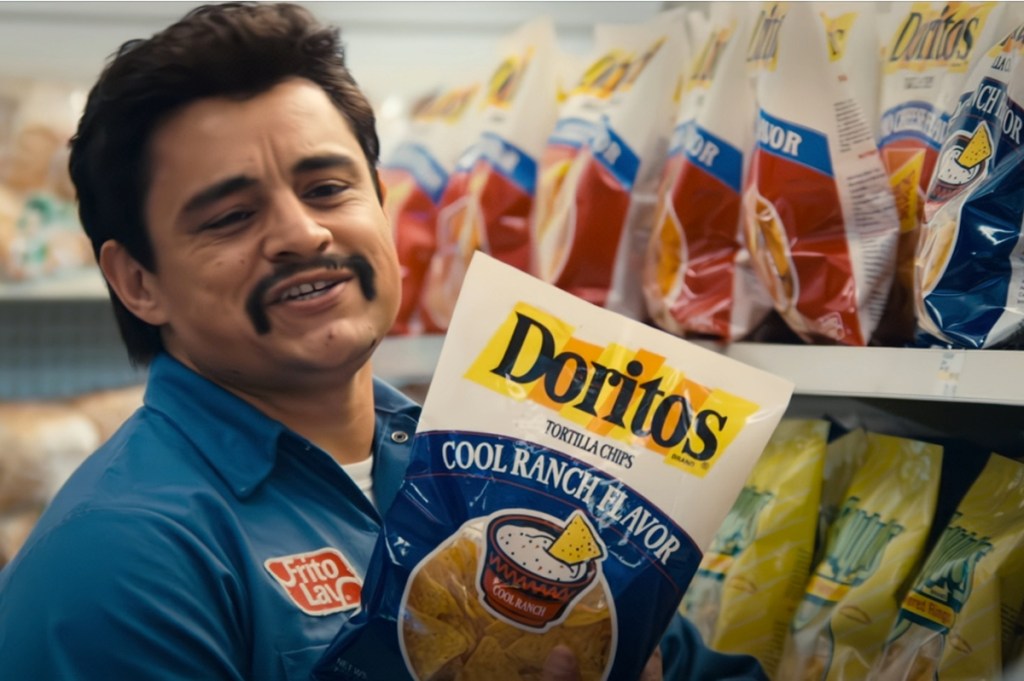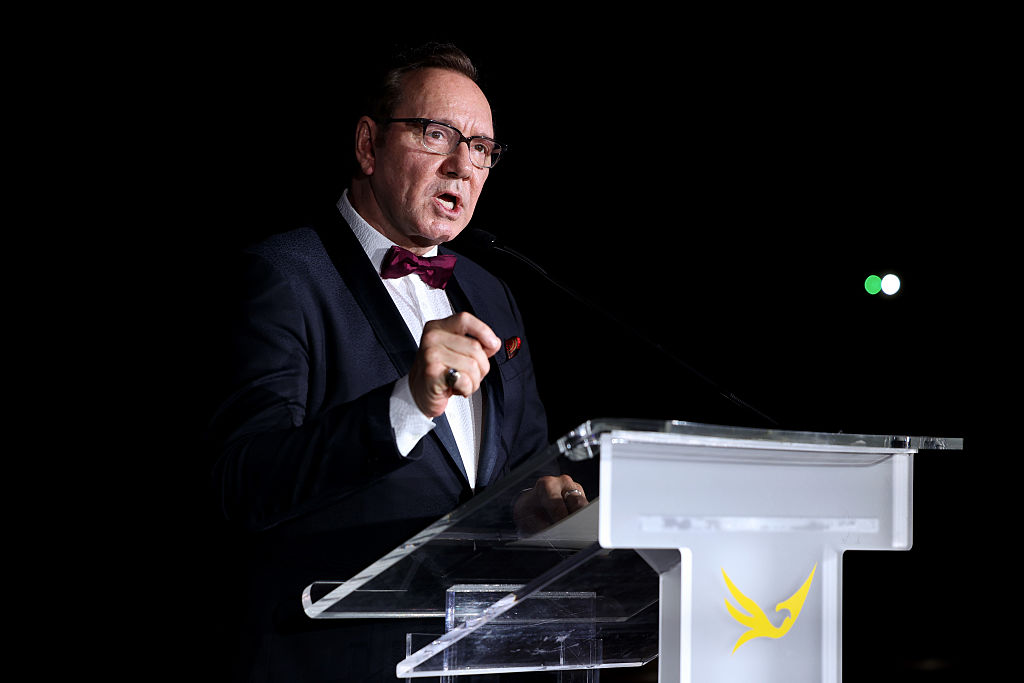It always used to be that, in Hollywood movies, big business was seen as a force for ill rather than good. Leaving aside that the films themselves were financed by giant studios hellbent on making a profit, such classics as Frank Capra’s It’s a Wonderful Life and Charlie Chaplin’s Modern Times firmly took the side of the individual against the system and presented the corporate world as a faceless and uncaring one — if, that is, it wasn’t simply a criminal one altogether, as best expressed by Lionel Barrymore’s sneering robber baron Potter in Capra’s film.
Today, things have changed immeasurably. The recent Flamin’ Hot, Eva Longoria’s directorial debut, is a paean of praise to the businessman Richard Montañez, who claimed to have invented Flamin’ Hot Cheetos — something hotly disputed by food manufacturer Frito-Lay, who said, “We value Richard’s many contributions to our company, especially his insights into Hispanic consumers, but we do not credit the creation of Flamin’ Hot Cheetos or any Flamin’ Hot products to him.” Yet whatever the truth of Montañez’s claims, his sympathetic, even aspirational, presentation in the film places him in the tradition of Hollywood’s least likely but most persistent new trend: the businessman as hero.
Over the past few years, there have been numerous examples of big-budget, fact-based drama that presents the corporate world not as a dry, money-obsessed place but as an inspirational and thrilling exercise in creativity. Ben Affleck’s recent Air, detailing Nike’s attempts to recruit Michael Jordan to create the Air Jordan sneaker, presents the various executives at Nike as little less than visionary and brilliant; small wonder that the film’s triumphant conclusion reveals that the Air Jordan shoes have netted hundreds of millions of dollars for the company. Affleck is too talented a filmmaker for Air not to be an entertaining and often witty picture, but only the most indulgent viewers would not find themselves questioning whether watching a multinational conglomerate become even more powerful and successful is truly the stuff of heartwarming cinema.
The more successful examples of business-focused filmmaking over the past few years have taken a more questioning approach. In The Founder, Michael Keaton — whose recent journey from semi-forgotten Eighties actor to vital presence in American cinema never fails to amaze — brilliantly portrayed McDonald’s franchisee Ray Kroc, who turned a fast food business into an international phenomenon. Kroc has generally been seen as an all-American success story, and the brilliance of Keaton’s performance was to combine Kroc’s obvious strengths — his charisma, business acumen and intelligence — with a sense of the moral shortcuts he took to achieve his success. Certainly, it was not a film that you can imagine being accompanied by a McDonald’s tie-in Happy Meal.
But then again, many companies might take the view that “all publicity is good publicity.” Danny Boyle’s Steve Jobs, with a typically magnetic Michael Fassbender as the Apple guru, did little to sugarcoat Jobs’s personal inadequacies, but nonetheless presented him as a genius for whom the normal rules of the corporate world — or, indeed, life — did not apply; it is hard not to imagine that Apple was secretly delighted by his presentation. And, more recently, the Taron Egerton vehicle Tetris took a colorful and playful caper-picture approach to put the audience on the side of a man who, at the end of the day, wanted to get rich by distributing someone else’s invention. If these films succeed, it is because of the quality of the production, not because of the often dubious moral messages therein.
Michael Douglas’s Gordon Gekko famously announced in Wall Street that “greed is good.” Back in the Eighties, this was felt to be pitched on a knife edge between satire and celebration — a rallying cry for a Reaganite age. Nearly four decades later, there is no longer any ambiguity, if these new films are to be believed. Even as Succession so adroitly skewers the vacuousness of billionaire ambition, its cinematic counterparts make the viewer believe the corporate world is a wonderful thing and its denizens brilliant men (because this is, after all, a largely male enclave, still). We have walked into Pottersville, the alternate dystopia from It’s a Wonderful Life, and, according to Hollywood, we should like what we see there; all hail the American businessman, the true hero of our times.





















